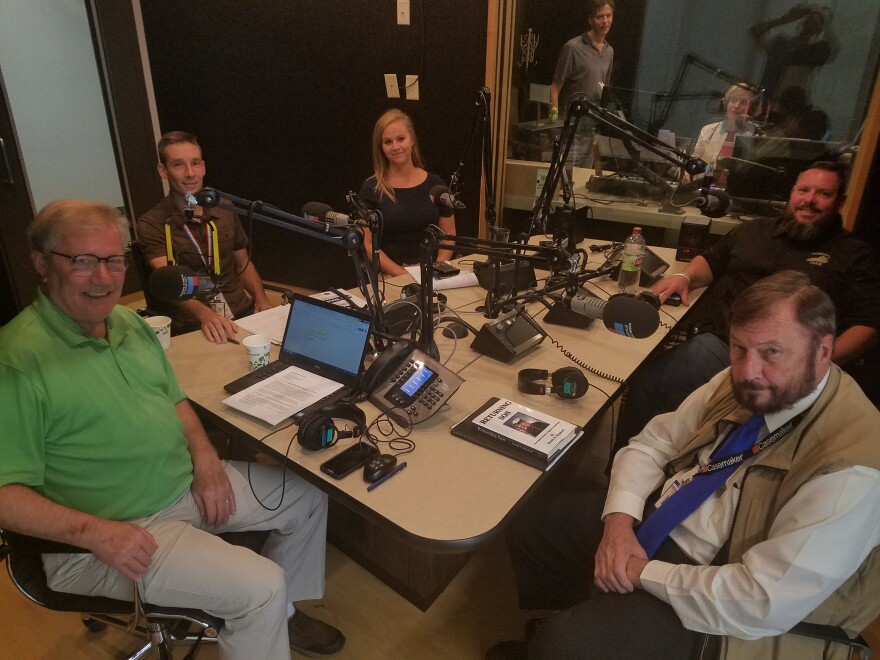Listen to the episode:
Advocates say there’s more public awareness now of the high rate of suicide among veterans, but more work must be done to care for veterans in need.
They spoke on WFPL’s In Conversation, which focused on veterans services and veteran suicide. Our guests were:
- Gulf War Veteran Sherry Whitehouse
- Veterans Club Founder Jeremy Harrell
- Kentucky Department of Veterans Affairs Legal Counsel Dennis Shepherd
- WFPL Health Reporter Lisa Gillespie
- Robley Rex VA Medical Center Suicide Prevention Coordinator Kelly Marcum
Dennis Shepherd, the Kentucky Department of Veterans Affairs Legal Counsel and a Vietnam War veteran, says a lot of veterans’ mental health issues come from their thoughts and experiences during combat.
“You start to lose your own personality, and with all of that comes the effects of combat,” Shepherd said, adding that it can lead to conditions like post traumatic stress disorder. “When you have those types of mental illnesses, you’re talking about the high possibility of being an at-risk veteran [who plans] to take their life.”
WFPL Health Reporter Lisa Gillespie recently reported on local efforts to address veteran suicide, and she said many people may not understand what veterans experience.
“I think a lot of people are just dissociated with what happens in war,” Gillespie said. “You see these terrible things, then you come home and people don’t understand why you went in the first place.”
According to U.S. Department of Veterans Affairs data, veterans die by suicide at about two times the rate of people who have never served in the military. Kentucky’s rate of veteran suicide is worse than the rest of the nation, reporting a rate of 36 veteran suicides per 100,000 people in 2016. Gulf War Veteran Sherry Whitehouse says it is a big problem for female veterans because they are often disregarded.
“When you combine being invisible, and then you’ve got the PTSD just from being in war … that can create a lot of confusion and depression and anxiety,” Whitehouse said. “Then they come home and they’re expected to still be loving, caring moms and sisters -- take care of everything. And it’s just too much to bear.”
Jeremy Harrell starteda local veterans club to change that, connecting veterans to services and helping them through mental health challenges. Harrell is an Iraq war veteran, and he said it is important to stop veterans from isolating themselves.
“We believe connection is key for suicide prevention,” Harrell said. “One of the reasons we created this is so that we can provide that for veterans. So that we can say, ‘Hey, Here we are. We’re out here, we want to help you and support you.’”
But Kelly Marcum, the Suicide Prevention Coordinator for the Veterans Affairs Medical Center, said they need help from the whole community in order to support veterans.
“We can’t physically connect with every single veteran without the help of everyone,” Marcum said. “There is help, there’s hope, and you can help too.”
Join us next week for In Conversation as we talk about climate change and how it impacts Kentucky.



